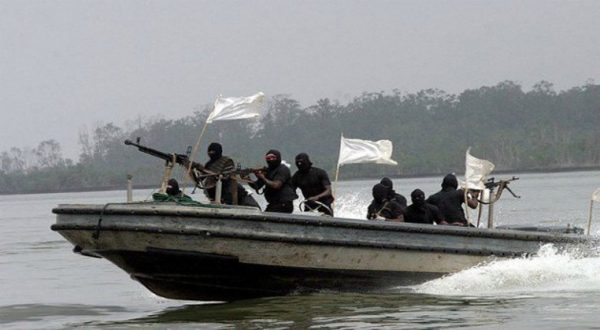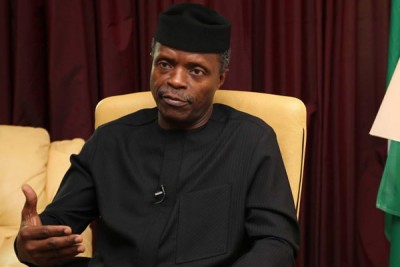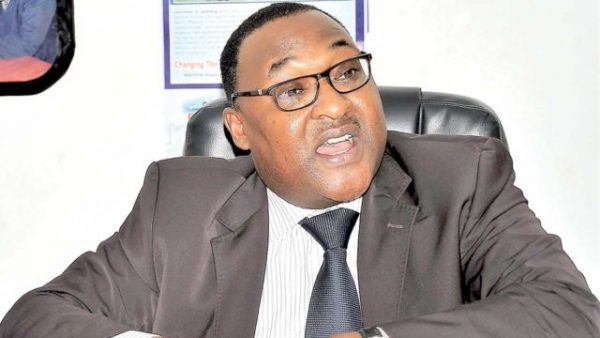NEWS LENS
LIMWeek 2021: Denmark Pledges Support To Nigeria On Maritime Security
By Kenneth Jukpor
Denmark has reiterated its support to Nigeria and other nations in the Gulf of Guinea (GoG) in a bid to intensify the war against piracy in the region.
The Ambassador of Denmark to Nigeria, Mr. Sune Krogstrup gave this assurance yesterday while speaking at the Lagos International Maritime Week (LIMWeek) 2021, organized by Zoe Maritime Resources Ltd., themed: “Seafarers and Maritime Capacity at the Core of Africa’s Shipping Future.”
Krogstrup noted that his country has 30- 40 ships transversing the GoG region on daily basis, adding that the Denmark government would continue to commit resources to protect its trade in the region.
Speaking on the Danish Frigate which killed four pirates in waters south of Nigeria in an operation to protect shipping in the GoG recently, the Danish Ambassador said the security team was on six months deployment to protect the nation’s trade in the region.
“I applaud the Nigerian government and other nations in the GoG for their efforts towards combating piracy in the region. The drop in piracy as captured in the International Maritime Bureau (IMB) second quarter report for 2021 further emphasizes these efforts. Denmark would continue to support Nigeria and other nations in the region to ensure safe and secure shipping,” Krogstrup said.
Also speaking at the event, the Minister of State for Transportation, Senator Gbemisola Saraki stated that the federal government had come up with initiatives to address the challenges confronting marine transportation in the country.
Saraki stressed that maritime transport sector is critical to the economic development of Nigeria, as the sector ontributes significantly to the country’s foreign exchange earnings from both cargoes and other shipping activities.
According to her, if the issues bedeviling the sector are addressed, it would lead to improved productivity, create employment opportunities and ensure sustainable development.
“Factors militating against the smooth running of marine transportation include; piracy, lack of maritime transport policy to regulate the maritime sub sector. Standardisation of customs procedures and failure to harmonize according to World Customs Organisation (WCO) standards and labour productivity continues to pose a significant challenge.”
“On a policy level, the industry suffers from a general lack of political drive to not only keep up with emerging international trends but to improve the nations responses to them. Woefully inadequate investments in port infrastructure, outdated and disconnected legislation which neither supports the growth of the industry nor the effective facilitation of trade to mention a few,” she said.
Saraki listed some of the initiatives introduced by federal government as combating piracy in the Gulf of Guinea through the Deep Blue Project, which was initiated by the Federal Ministry of Transportation in collaboration with Ministry of Defence.
However, the Acting Chief Executive Officer, Namibia Drydock and Ship Repair (Pty) Ltd., Mrs. Heritha Muyoba, decried the number of African countries whitelisted by the International Maritime Organisation.
Muyoba noted that there was need to get more African countries to be whitelisted so that it would enable the region’s seafarers to serve on international ships.
She called for collaboration among African countries, adding that out of the 54 African countries, only 38 had the potential to train their seafarers, and training was key to their development.
“In global supply and demand of seafarers, there are 1,447,500 seafarers, 770,000 officers and 573,500 ratings. The Philippines is the biggest supplier of ratings, followed by China, Indonesia, the Russian Federation and Ukraine While China is the biggest supplier of officers, followed by the Philippines, India, Indonesia and the Russian Federation, where is Africa?
“Africa needs to use its maritime competitive advantage by ensuring that their seafarers are trained, collaborate, create satellite campuses, spend money together to give skills to them,” she said.
In her welcome address, the Chairperson of Zoe Maritime Resources, Mrs. Oitsematosan Edodo-Emore, noted that the conference provided a unique platform to address issues of maritime security, inland waterways, admiralty law, women in maritime, among other pertinent topics.
She, however, observed that the COVID-19 pandemic had underscored the importance of seafarers in international trade.
While stating that the significance of the marine environment isn’t only for food and transportation, she observed that plastic pollution and other forms of pollution have become major problems.







